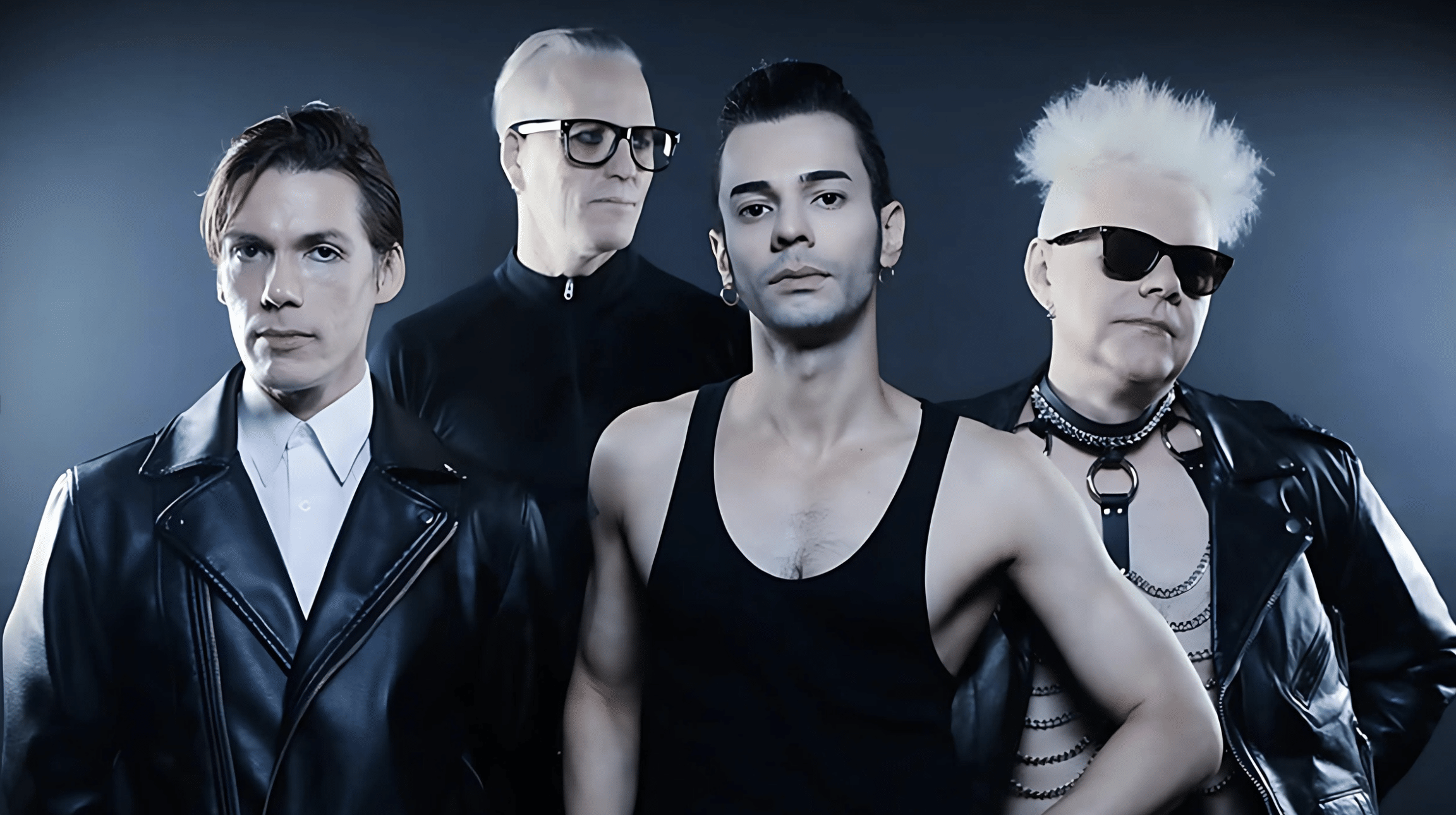
Depeche Mode, one of the most influential bands in the history of electronic music, has left an indelible mark on the music world. For over four decades, the group, led by charismatic frontman Dave Gahan, has created an impressive catalog of music that transcends genres and generations. As the band’s journey continues, Gahan himself has reflected on the legacy of Depeche Mode, what the band means to him personally, and the evolution of their sound.
In recent interviews and conversations with fans, Gahan has been open about the band’s incredible journey, their lasting impact on music, and the intricate dynamic that has allowed Depeche Mode to remain relevant, powerful, and beloved by so many fans worldwide. As Gahan approaches his own 60th birthday, the story of Depeche Mode becomes even more meaningful, carrying with it the weight of not just musical history, but also the personal stories of the individuals who brought it to life.
The Early Years: Formation and Breakthrough
Depeche Mode was born in 1980, formed by Vince Clarke, Martin Gore, Andy Fletcher, and a young Dave Gahan in Basildon, Essex. The early years of the band’s career were marked by experimentation and a pioneering use of synthesizers in the post-punk era. With Clarke at the helm of their early sound, their debut album Speak & Spell (1981) was an instant success, with the iconic hit “Just Can’t Get Enough” propelling them into the international spotlight.
However, it was Gahan’s distinctive baritone voice and stage presence that would come to define Depeche Mode’s sound and reputation. Clarke’s departure after their first album left Gore to take over the primary songwriting duties, which brought Depeche Mode into a new creative phase. Songs like “Everything Counts,” “People Are People,” and “Master and Servant” showcased the band’s more mature and layered approach to electronic music, fusing new wave with socially conscious lyrics and darker, more complex themes.
Gahan has often acknowledged that his role in Depeche Mode was, in part, to be the emotional anchor of the band. While Gore’s songwriting grew increasingly introspective and philosophical, Gahan’s ability to embody those emotions through his powerful vocal performances allowed Depeche Mode to truly resonate with listeners. As the band’s sound evolved, Gahan’s voice remained a central element, capable of delivering both vulnerability and aggression.
Navigating Success and Personal Struggles
As Depeche Mode’s popularity grew throughout the 1980s and early 1990s, the band became known not only for their innovative music but also for their compelling, atmospheric live performances. Their tours, including the Music for the Masses (1987) tour and the Violator (1990) era, solidified their status as global icons. “Enjoy the Silence,” “Personal Jesus,” and “Policy of Truth” became anthems, and the band’s distinctive fusion of synth-pop, alternative rock, and industrial sounds made them one of the most innovative acts of their time.
However, during this period, Gahan also battled with personal demons. He became open about his struggles with addiction, which affected not only his personal life but also the band’s cohesion at times. His struggles with drugs and alcohol led to several near-death experiences, most notably in 1993, when he overdosed on heroin. This period of his life became a turning point for both Gahan and the band. He has openly discussed how his near-death experience shaped his outlook on life, with a newfound sense of gratitude and commitment to both his personal recovery and Depeche Mode’s ongoing success.
In the years that followed, Gahan sought treatment and gradually turned his life around. His experiences have not only shaped his perspective on music but have also had a profound influence on Depeche Mode’s later work. Gahan’s own journey towards healing and redemption can be heard in the rawness and vulnerability that permeates albums like Songs of Faith and Devotion (1993) and Ultra (1997), where themes of pain, love, and survival are prominent.
Depeche Mode’s Enduring Legacy
As the decades passed, Depeche Mode continued to push boundaries, with Gahan and the band remaining dedicated to evolving their sound while staying true to the core elements that made them unique. Albums like Playing the Angel (2005), Sounds of the Universe (2009), and Delta Machine (2013) all showcased the band’s ability to experiment with newer electronic styles while retaining the emotional depth and complexity that fans had come to love.
Despite the passing of time, Depeche Mode has consistently remained at the forefront of music, and much of that success is attributed to Gahan’s unwavering commitment to the band’s artistic vision. His role as the band’s frontman and emotional core has only grown in significance. For Gahan, Depeche Mode is not just a band; it is a legacy, a shared history that is deeply intertwined with his own journey of self-discovery and reinvention.
In his reflections on the band’s legacy, Gahan has expressed a sense of awe and humility. Depeche Mode’s music has endured because it is rooted in something deeper than just catchy songs or commercial success. It speaks to the complexities of the human experience, addressing universal themes of love, alienation, faith, and struggle. As Gahan himself has put it, “We’ve been through a lot together as a band, and we’ve always come out the other side stronger.”
The Band’s Impact on Music and Culture
Depeche Mode’s influence on modern music is undeniable. The band helped shape the development of electronic music and inspired countless artists, both within and outside the genre. They played a key role in the mainstream acceptance of electronic music, paving the way for acts such as Nine Inch Nails, Moby, and the Chemical Brothers. Their innovations in synthesizers, drum machines, and studio techniques were groundbreaking, and their influence can still be heard in much of today’s popular music.
Furthermore, Depeche Mode’s ability to balance commercial appeal with artistic integrity has earned them respect from fans and critics alike. The band has built a reputation for creating music that challenges listeners, offering complex, layered compositions that reward deeper engagement. Gahan’s voice, often referred to as one of the most distinctive in rock music, continues to be celebrated for its depth, range, and emotive power.
But it’s not just their music that has left a lasting mark—it’s also the way Depeche Mode’s music speaks to the human condition. Gahan has often said that the power of Depeche Mode’s music lies in its ability to connect with people on a deeply emotional level. “It’s about finding something that resonates with people,” he once stated. “That’s the beauty of music—it’s something everyone can relate to, no matter where they come from or what their background is.”
Looking to the Future
Even as Depeche Mode approaches their fifth decade, the band’s future looks bright. Their most recent album, Memento Mori (2023), released in the wake of the death of founding member Andy Fletcher, marks a significant milestone in the band’s history. Gahan, along with Martin Gore, has carried the torch forward with a renewed sense of purpose, creating an album that continues to explore themes of mortality, resilience, and the human experience. The album’s release was a testament to the enduring spirit of Depeche Mode and the band’s ability to evolve while honoring its past.
In interviews, Gahan has discussed how the passing of Fletcher profoundly affected him and the band. “We’re all aware that we’re in the last chapter of our story. But the music will live on,” Gahan remarked. He and Gore have continued to express the importance of keeping the Depeche Mode legacy alive for future generations, while acknowledging the inevitable passage of time. For Gahan, Depeche Mode’s journey is not just about the music; it’s about the people who have been along for the ride, the fans who have supported the band through thick and thin.
Conclusion
As Dave Gahan opens up about Depeche Mode’s legacy, it’s clear that the band’s impact extends far beyond their chart-topping hits. Their music has shaped not only an entire genre of electronic music but also the lives of millions around the world. Gahan’s own journey—marked by personal triumphs, struggles, and growth—has become intrinsically tied to the band’s identity, and his reflections offer a poignant reminder of the power of music to transcend time and touch the soul.
Depeche Mode’s legacy is a testament to their ability to evolve, innovate, and connect with audiences on a deeply emotional level. As Gahan continues to reflect on their journey, the story of Depeche Mode remains one of music’s most compelling and enduring sagas—a story that will continue to inspire future generations of listeners and musicians alike.





